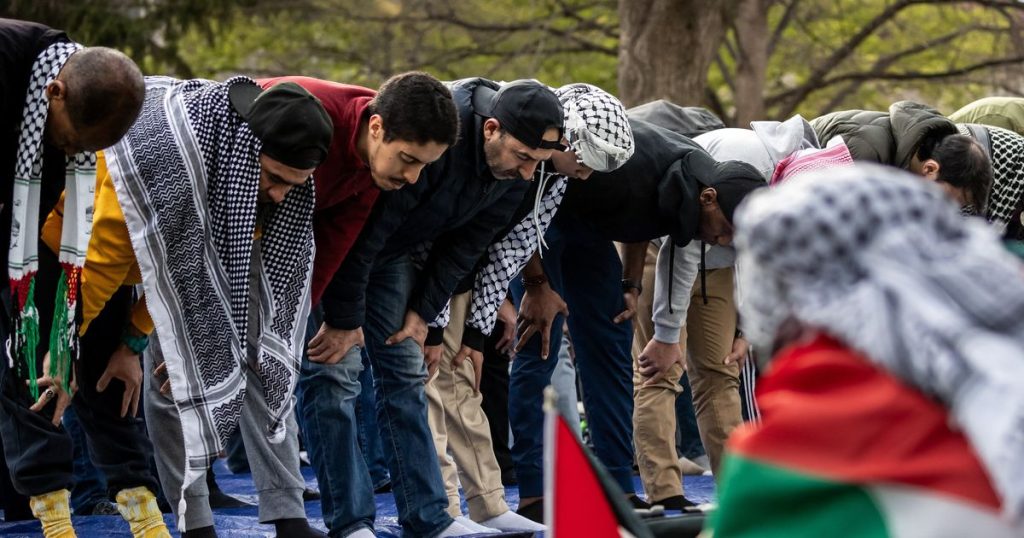The Council on American-Islamic Relations (CAIR), the largest Muslim civil rights group in the U.S., received a record number of complaints of anti-Muslim incidents in 2023. The group documented 8,061 complaints nationwide, the highest number since it began recording cases 30 years ago. These incidents include hate crimes, employment discrimination, and education discrimination. Nearly half of the complaints were reported in the last three months of the year, with the report attributing the increase in anti-Muslim sentiment to the war in Gaza. The conflict between Hamas and Israel resulted in severe backlash against Muslim and Palestinian Americans, with incidents such as shootings, stabbings, and harassment reported across the country.
The wave of Islamophobia following the conflict in Gaza is described as even greater than the backlash seen after former President Donald Trump’s Muslim travel ban in 2017. The report highlights that anti-Arab and anti-Palestinian racism is not synonymous with Islamophobia but notes that these identities have been conflated, leading to anti-Muslim hate being part of broader discriminatory attitudes. Employment discrimination, hate crimes, and education discrimination were the most commonly reported categories of Islamophobia in 2023, making up 44% of the total complaints. From pro-Palestine activists to college students, many individuals faced intimidation, harassment, and backlash for their support of Palestinian human rights.
Criticism has been directed at the White House for not calling for a cease-fire in Gaza and for not addressing the human rights violations against Palestinians by Israeli forces. Muslim and Arab groups have expressed dissatisfaction with President Joe Biden’s handling of the conflict, leading to some voters choosing to mark “uncommitted” on their ballots during the Democratic primary season. CAIR’s research and advocacy director, Corey Saylor, emphasized the importance of political leaders taking a strong stance against Islamophobia and anti-Palestinian racism and advocating for an immediate and permanent cease-fire in Gaza to protect the lives of Muslims, Arabs, and Palestinians globally.
The continued rise of anti-Muslim bigotry in the U.S. is a cause for concern, with activists and advocates calling for meaningful changes to address the discrimination faced by Muslim and Arab communities. The campaign of anti-Muslim bigotry and anti-Palestinian racism following the Gaza conflict has significantly impacted the safety of these communities in the U.S. The report notes that efforts to vilify Muslim and Arab identities have contributed to the prevalence of discriminatory attitudes, making it crucial for political leaders to take a stand against hate and discrimination. The safety and well-being of American Muslims, Arabs, and Palestinian communities are at risk, and it is essential for leaders to push for positive change and support those affected by bigotry and discrimination.
In response to the surge in Islamophobia, CAIR has called for action from political leaders to address the root causes of discrimination and promote tolerance and understanding. Without meaningful changes and efforts to combat anti-Muslim bigotry, the situation is likely to worsen, further endangering the safety and well-being of Muslim, Arab, and Palestinian communities in the U.S. By advocating for an immediate cease-fire in Gaza and condemning anti-Muslim hate, political leaders can work towards creating a more inclusive and supportive environment for all individuals affected by discrimination and prejudice.


